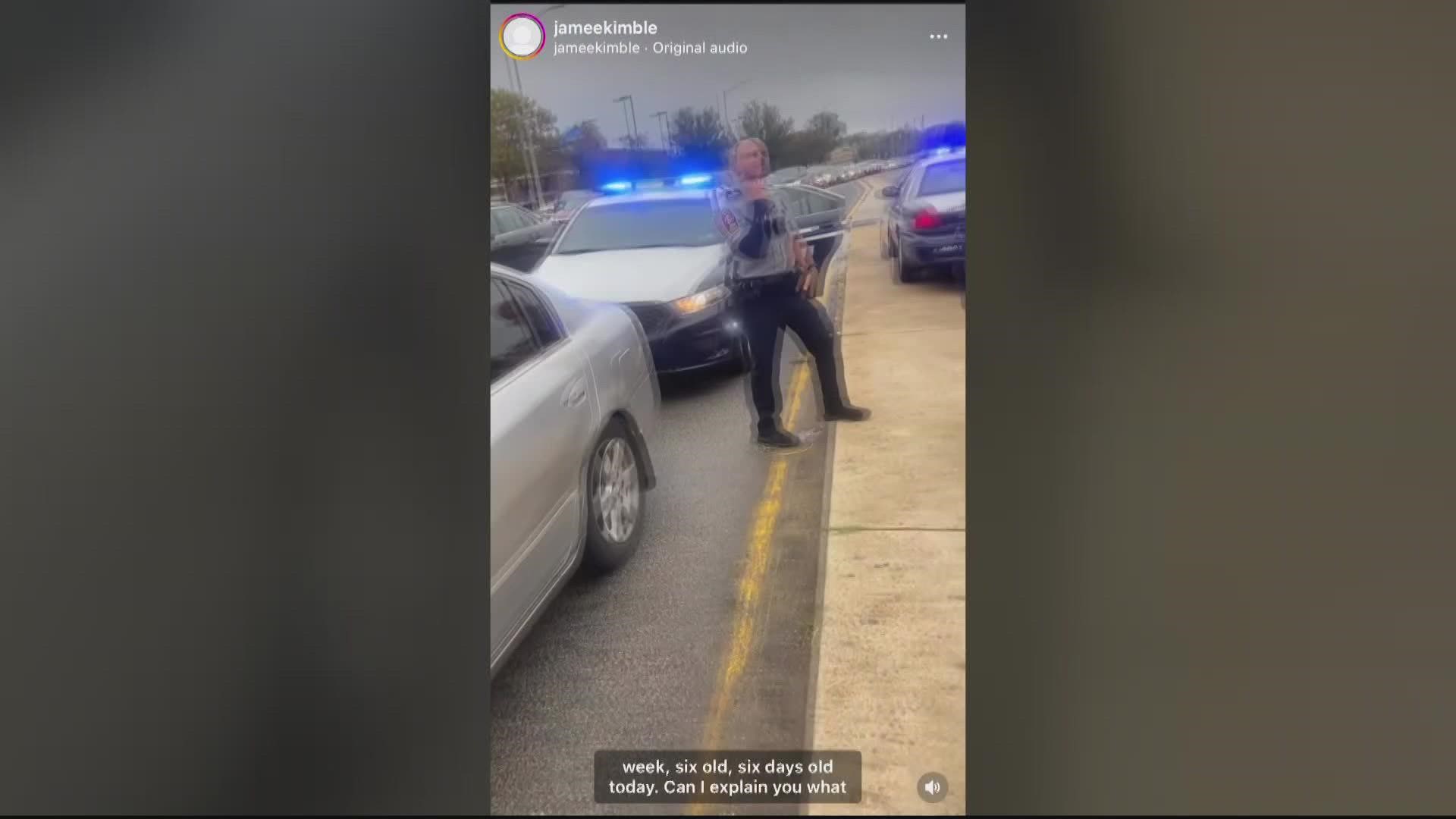ALEXANDRIA, Va. — After a viral video of a young Virginia mother being pulled over by Fairfax County Police has gone viral. A lot of people are asking questions about what is a 'felony vehicle stop'.
On Monday, we asked Fairfax County Police this question, it’s the reason they said they stopped Jamee Kimble. They referred us back to their statement, which doesn’t fully explain what the difference is between being pulled over and a felony vehicle stop.
Fairfax County Police said officers verified the alert on her vehicle on Richmond Highway as a felony vehicle with occupants listed as armed and dangerous.
Police have not confirmed whether they used blue lights or not, but Jamee Kimble said they just crashed into her.
“No lights, no sirens, no anything. He never tried to cut me off,” she said.
Sebastian Norton is an attorney at King, Campbell, Poretz, and Mitchell.
We asked him about what officers are allowed to do when conducting a felony vehicle stop.
When asked if police are required to use blue lights and sirens in order to try to pull the vehicle over, Norton said they are not legally required to identify themselves before trying to pull the car over.
“There's no hard and fast rule of law stating that they have to identify themselves as police officers prior to initiating the stop," Norton said.
Norton explained that depending on the circumstances known to the police at that time, they don't necessarily have to, but if they do identify themselves and the car continues to drive away, at that point the driver could be charged with something like eluding because they were given reason to know that the person trying to pull them over were officers.
Norton also said drivers should be reminded of their 4th Amendment right to privacy, and that the government doesn’t have the right to intrude either in your home or personal effects or in your vehicle.
“Unless a warrant has been issued for a search or a seizure, seizure being kind of an arrest, by a neutral detached magistrate,” Norton said.
He added that you do not have the right to stay in your vehicle if asked to get out.
“Police, for investigative purposes and for officer safety, do have the ability to order a person out of their vehicle and that is something that everybody should comply with if they're ordered with that,” Norton said.

